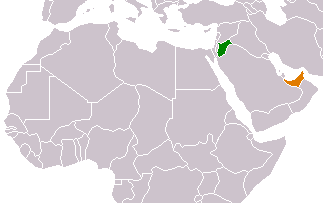
The dialogue between the leaders underlines the importance of collaboration in addressing shared challenges in the Middle East. The UAE and Jordan have a history of mutual support and partnership, which has evolved significantly in recent years. Their discussions are particularly relevant in the context of geopolitical shifts, the Palestinian issue, and the broader dynamics of the Arab world.
In the past year, both nations have engaged in initiatives aimed at promoting regional stability. The UAE has increased its diplomatic engagement with various stakeholders in the region, seeking to bolster alliances and improve security cooperation. King Abdullah’s leadership has been instrumental in advocating for a peaceful resolution to conflicts, especially concerning Palestine, which remains a pivotal issue in Jordan's foreign policy.
The recent meeting also served as a platform for both leaders to reaffirm their commitment to economic cooperation. The UAE has been a significant investor in Jordan, contributing to various sectors such as energy, tourism, and infrastructure. The discussions included exploring new avenues for investment, particularly in renewable energy, which aligns with the UAE's broader sustainability goals. Both leaders emphasized the need to harness economic potential through joint ventures and initiatives that benefit both countries.
Cultural and educational exchanges have also been a focal point in the UAE-Jordan relationship. Initiatives aimed at enhancing educational opportunities and cultural understanding have been pivotal in strengthening the people-to-people ties between the two nations. Programs facilitating student exchanges, cultural festivals, and collaborative research projects reflect a mutual recognition of the importance of education and cultural diplomacy in fostering long-term relationships.
The leaders addressed the situation in Syria, emphasizing the need for a concerted international effort to support peace and stability in the war-torn nation. Both the UAE and Jordan have hosted Syrian refugees, showcasing their commitment to humanitarian efforts. The discussion on Syria included considerations for rebuilding the nation and facilitating the safe return of refugees, highlighting the shared responsibility of regional players in addressing this humanitarian crisis.
The talks touched upon the evolving security landscape in the Middle East. With rising tensions and threats from various non-state actors, both leaders acknowledged the importance of intelligence sharing and joint security initiatives to combat terrorism and extremism. The UAE’s advanced security capabilities and Jordan’s strategic position provide a solid foundation for enhancing cooperation in counter-terrorism efforts.
The leaders also expressed their shared vision for a prosperous future, where both countries can thrive amidst challenges. They agreed on the importance of maintaining open lines of communication to ensure that both nations can respond swiftly to emerging threats and opportunities. The ongoing collaboration reflects a strategic alignment in foreign policy, with both leaders advocating for stability and peace in the region.
The meeting coincided with broader regional efforts to enhance cooperation among Arab states. The UAE has played a crucial role in various diplomatic initiatives aimed at fostering unity and collaboration within the Arab world. King Abdullah's commitment to dialogue and diplomacy complements the UAE's approach, reinforcing the notion that collective action is essential for addressing shared challenges.
In the wake of the meeting, both leaders expressed optimism about the future of their bilateral relationship. The UAE and Jordan share a vision for a stable and prosperous Middle East, underpinned by strong diplomatic ties and a commitment to mutual support. As regional dynamics continue to evolve, their partnership is likely to adapt, focusing on pragmatic solutions that benefit both nations and the wider region.
Topics
UAE
